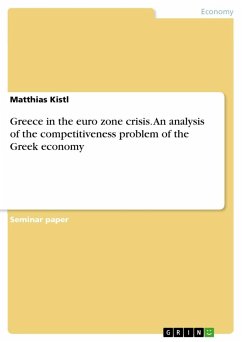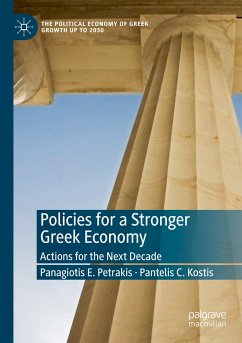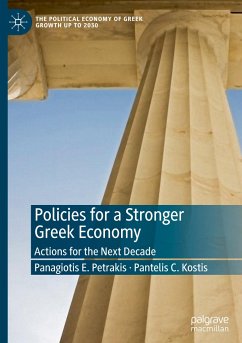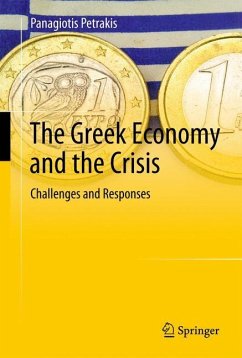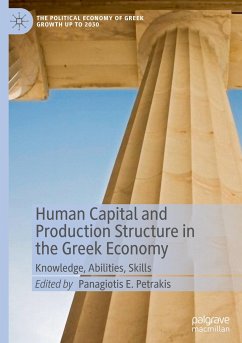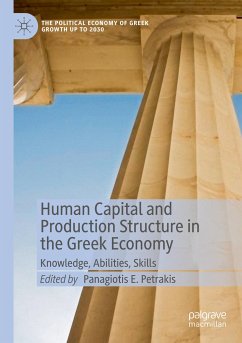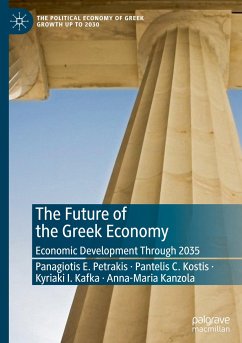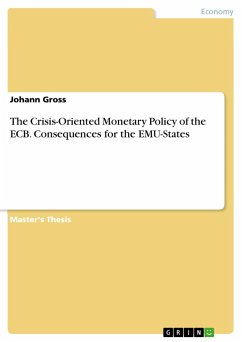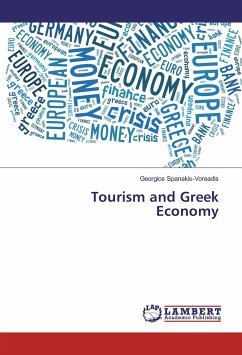
Tourism and Greek Economy
Versandkostenfrei!
Versandfertig in 6-10 Tagen
24,99 €
inkl. MwSt.

PAYBACK Punkte
12 °P sammeln!
After the affiliation of Greece in the Economic and Monetary Union in 2001 Greek Economy developed rapidly, while its possibilities of dealing with the structural problems of the public, as well as the private sector have increased. This is due to the country's operation in a common monetary environment, designated by the European Central Bank. A grate contribution of tourism is in the formation of the National Income and the economic growth. It also contributes to the unemployment's and underemployment's reduction, generally to the improvement of the unequal distribution of the National Produ...
After the affiliation of Greece in the Economic and Monetary Union in 2001 Greek Economy developed rapidly, while its possibilities of dealing with the structural problems of the public, as well as the private sector have increased. This is due to the country's operation in a common monetary environment, designated by the European Central Bank. A grate contribution of tourism is in the formation of the National Income and the economic growth. It also contributes to the unemployment's and underemployment's reduction, generally to the improvement of the unequal distribution of the National Product on a regional level and the decentralization of the population. Tourism plays an important role in the inflow of foreign exchange and the decrease of the deficit of the Balance of Payments. In fact Tourism is the main wealth-producing resource of the Greek Economy; however it should only be used as an effective strategic mean of development following the other main branches of production



